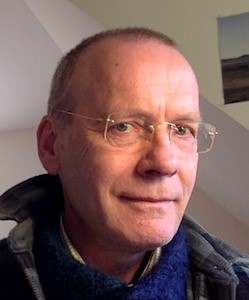Speaker
Prof. Dr. Herbert Jaeger
Full Processor for Computing in Cognitive Materials
at the University of Groningen
Location
IDS (seminar room UMIC-25) and
zoom (contact
Date
Feb. 14th, 2023 at 2pm.
Abstract
In material (or physical or unconventional or in-materia …) computing we can already serve and relish a number of material demonstrations. These fruits are diverse and some are exotic, based on substrates as different as DNA sniplets, fungi, silicon nanobeams, or gold particle films; and they exploit very different physical phenomena, like energy minimization in collective systems, coupled mechanical oscillations, phase transitions, quantum state interactions, or reaction-diffusion processes. – Looking at digital computing, we see that its long-lasting, prosperous development is safely rooted in unifying and abstract theory: automata theory and formal languages, Turing computability, Boolean and other symbolic logics. These theory branches are transparently interconnected and taught to computer science students worldwide always in the same canonical format. The unifying invariant across all these sub-theories is the concept of discrete symbol structures. – In order to make material computing stand confidently side by side with digital computing, a similarly powerful formal theoretical underpinning is critically needed. I will propose a theory organigram, pinpointing which sub-theories would be needed to fill which roles in a future engineering science of material computing; and I will try to explain my intuitions about mathematical objects which could generalize discrete symbol structures, yielding the conceptual invariant to tie it all together.
Bio
Herbert Jaeger studied mathematics and psychology at the University of Freiburg and obtained his PhD in Computer Science (Artificial Intelligence) at the University of Bielefeld. After a 5-year postdoctoral fellowship at the German National Research Center for Computer Science (Sankt Augustin, Germany), he headed the "Intelligent Dynamical Systems" group at the Fraunhofer Institute for Autonomous Intelligent Systems AIS (Sankt Augustin, Germany). From 2003 to 2019 he was Associate Professor for Computational Science at Jacobs University Bremen, and since 2019 he is Full Processor for Computing in Cognitive Materials at the University of Groningen. His current research revolves around formal theory-building for non-digital computing.



